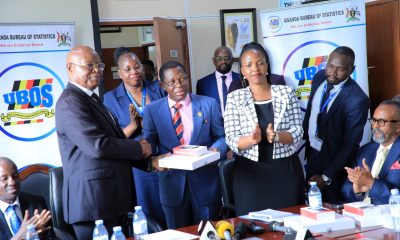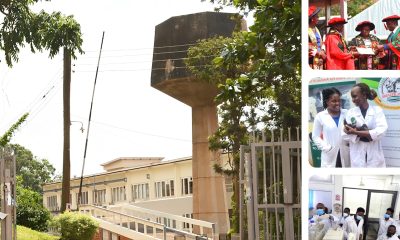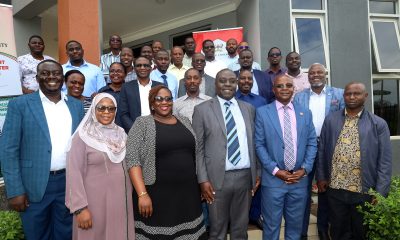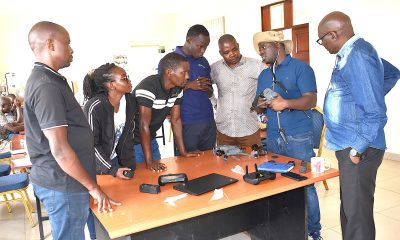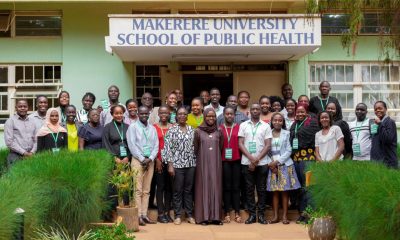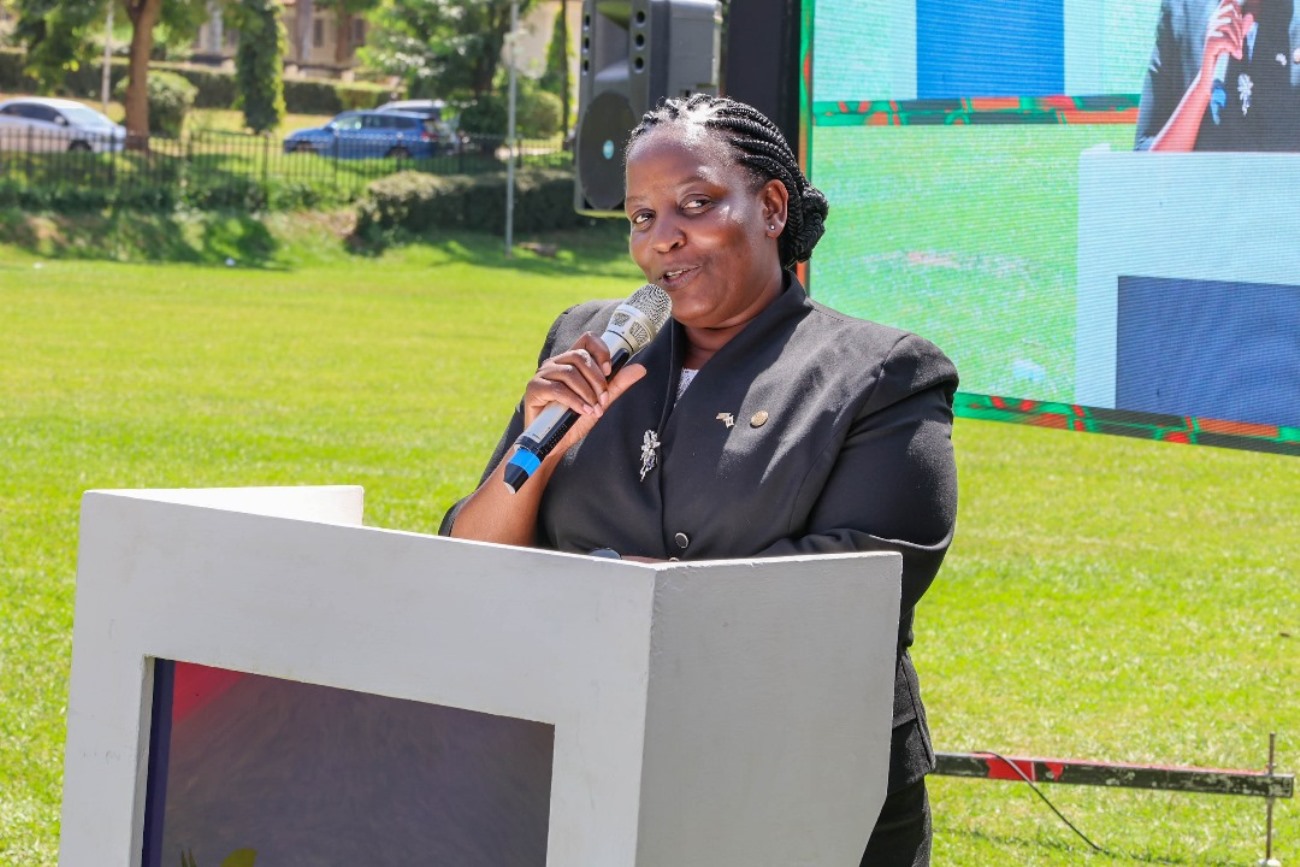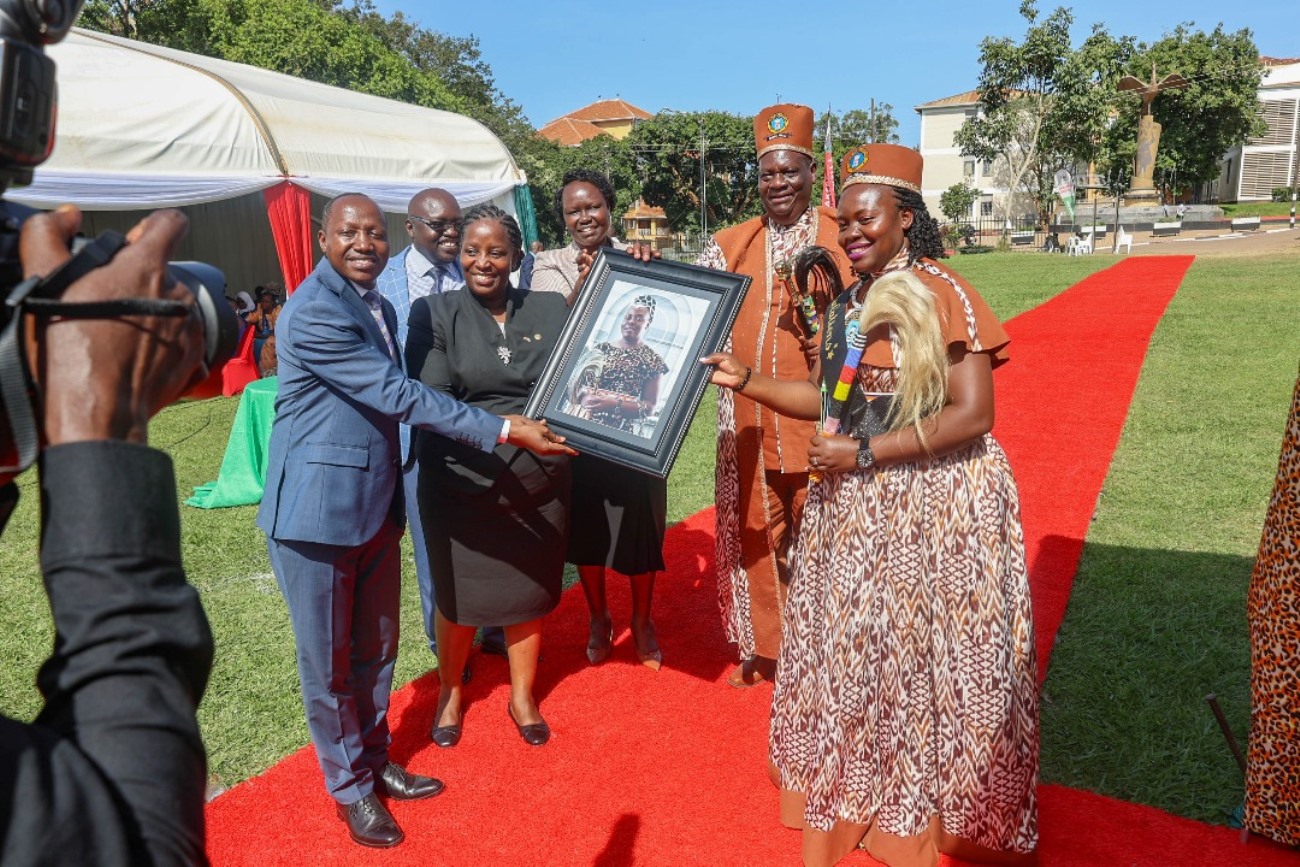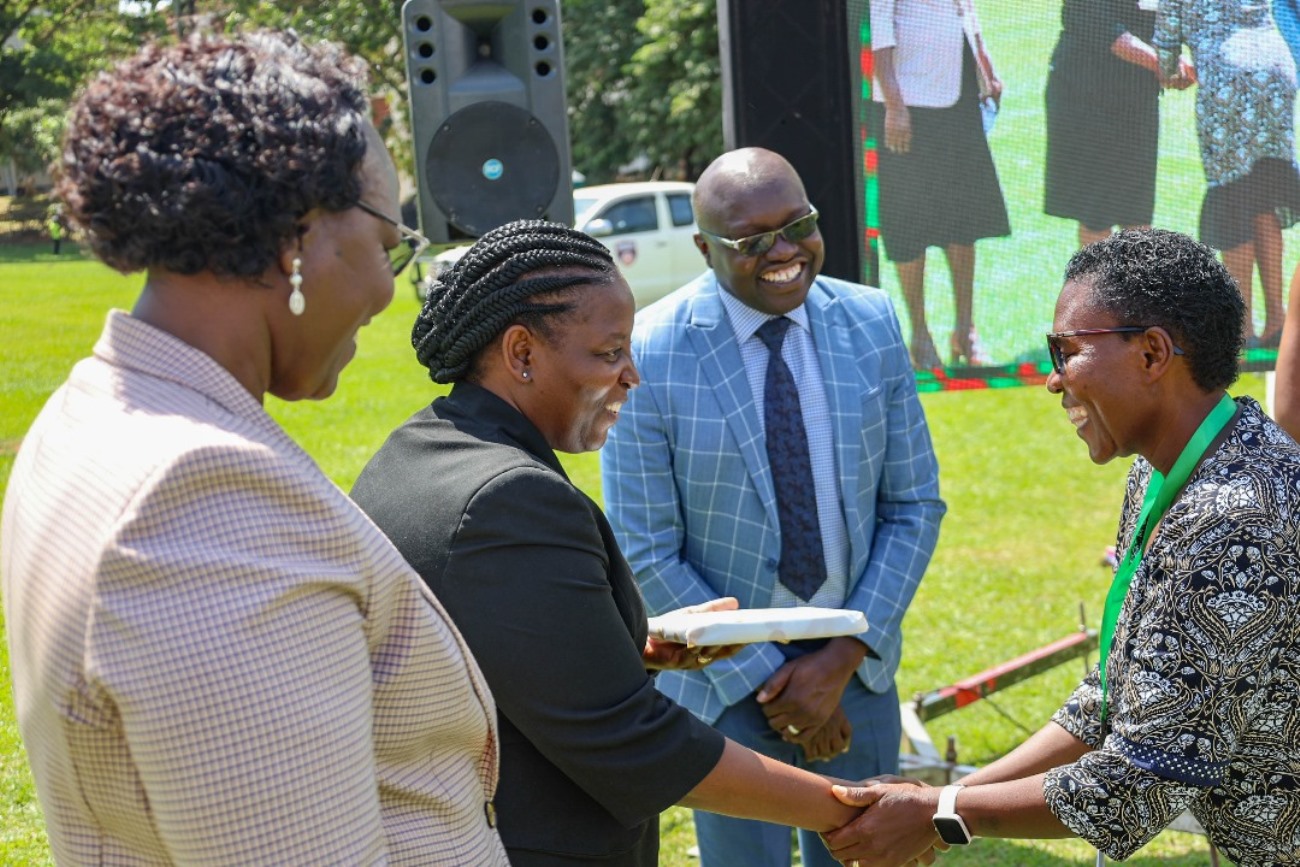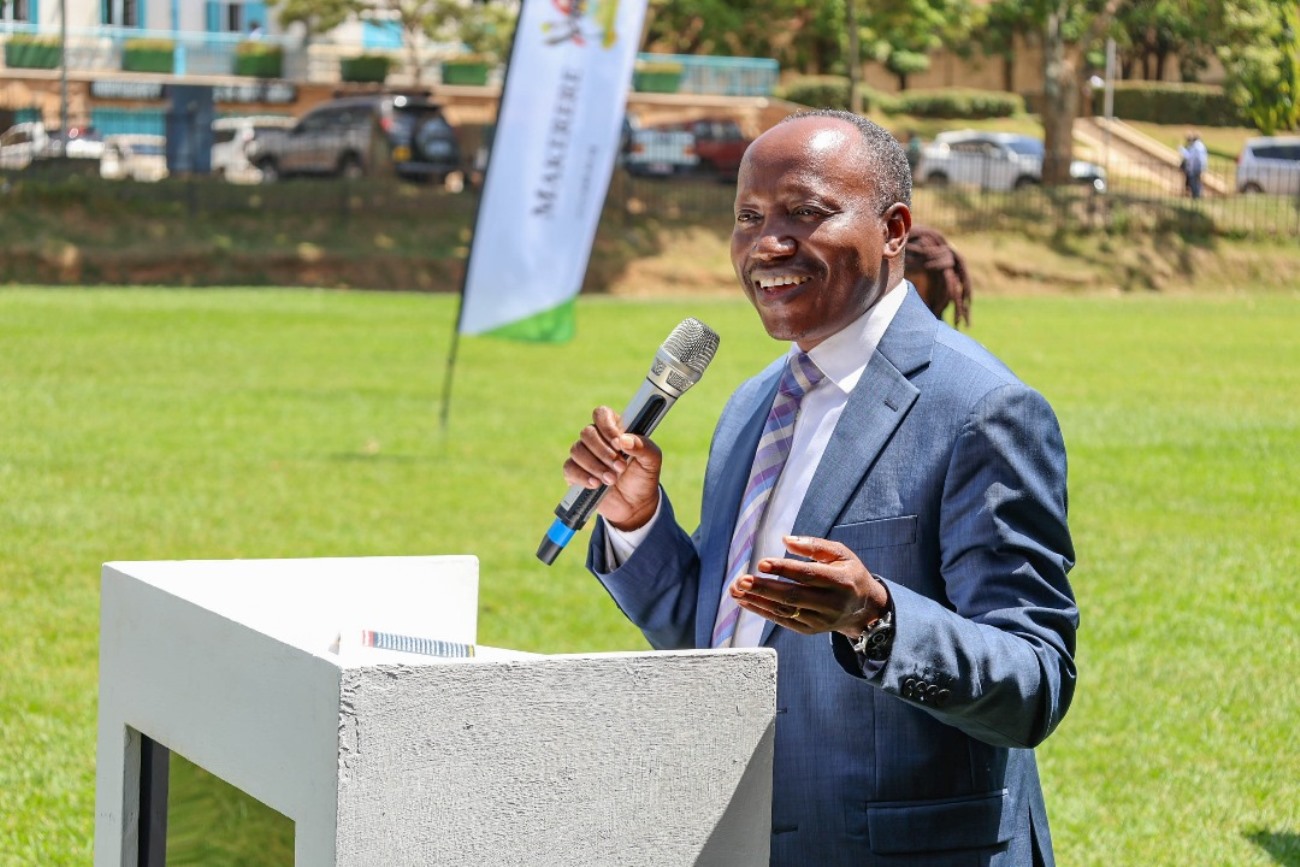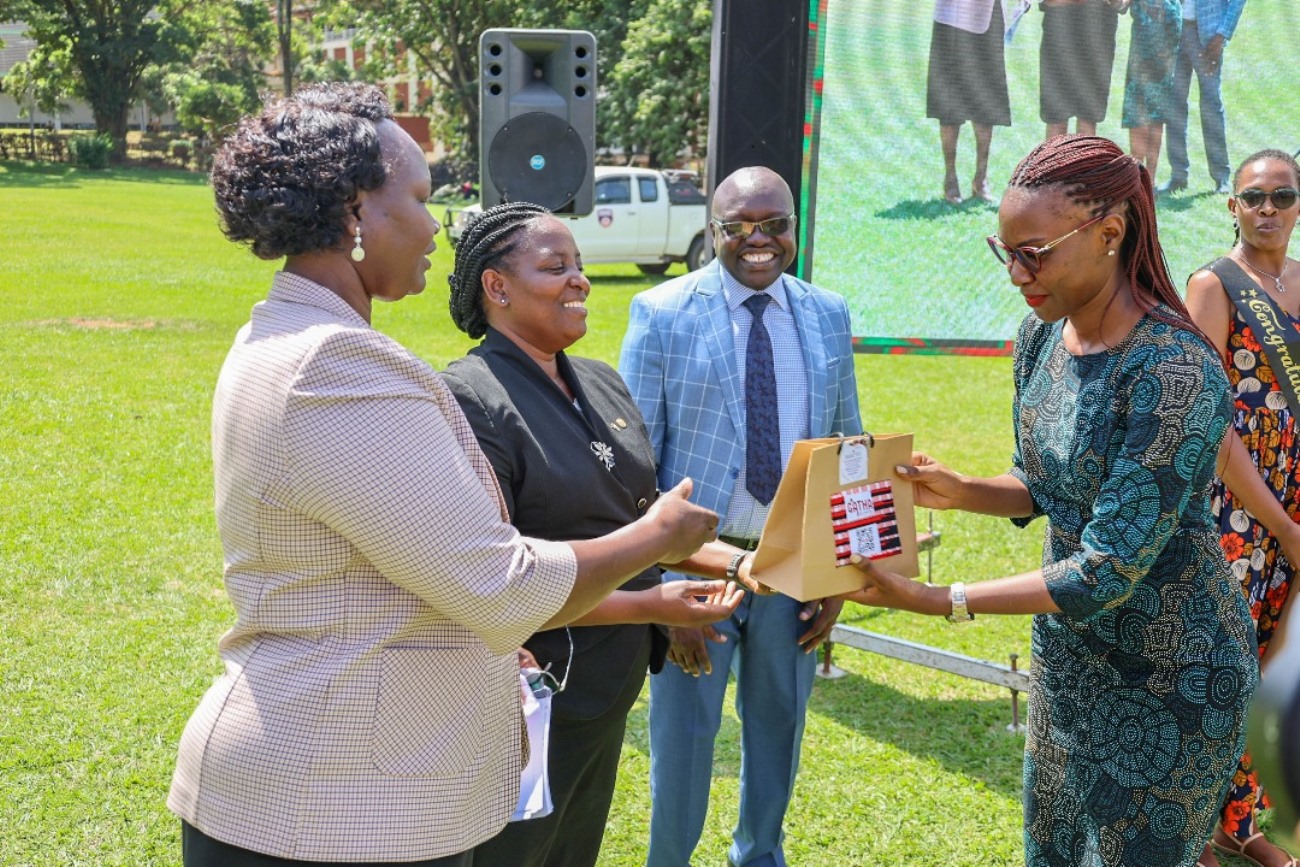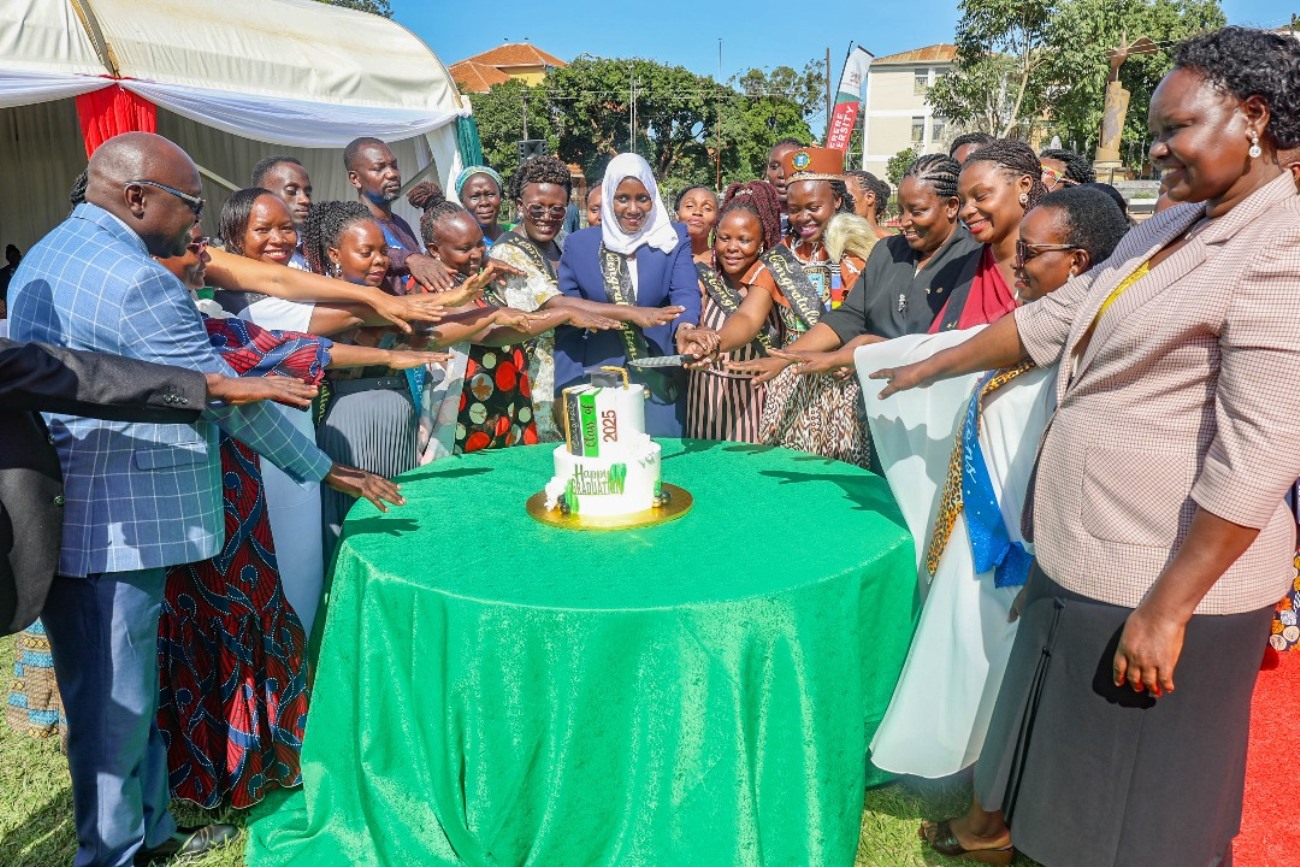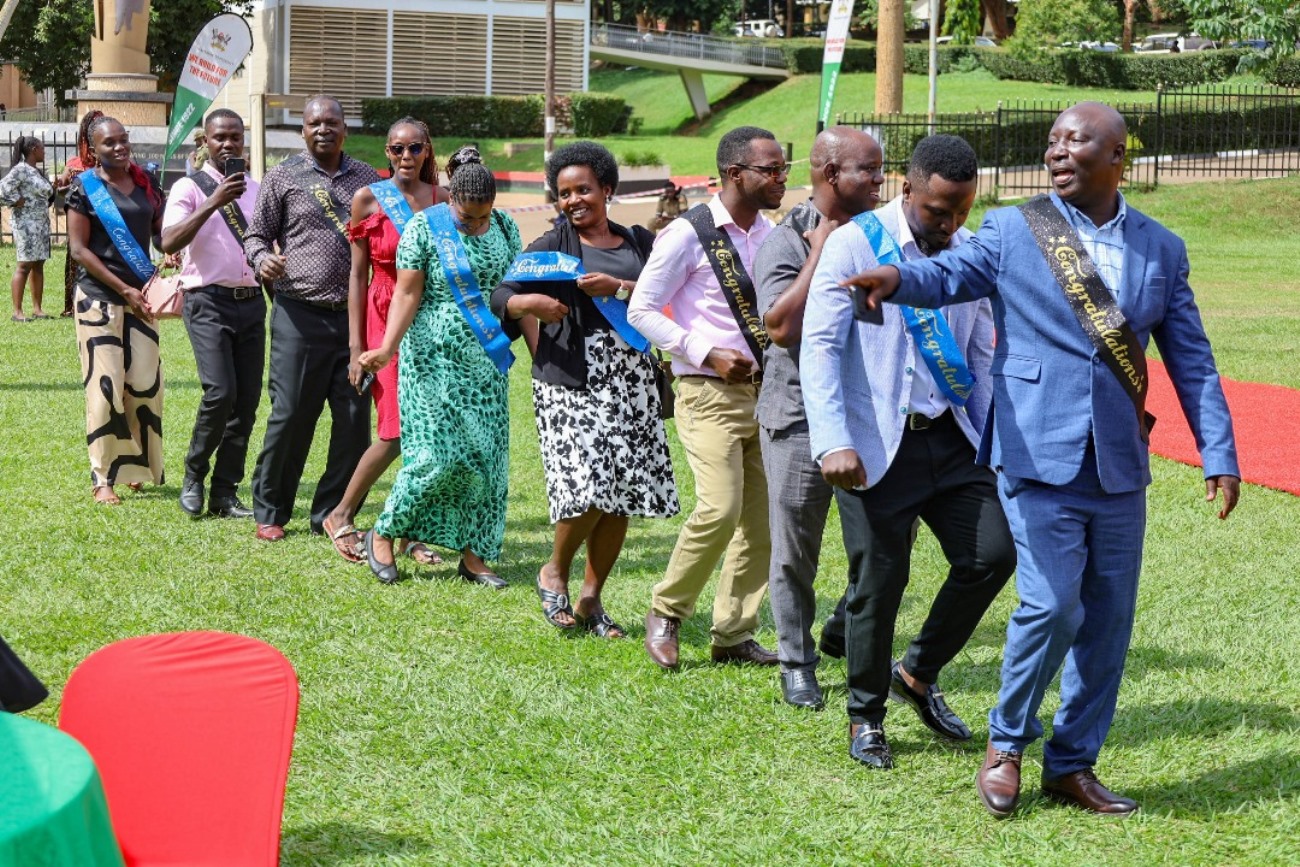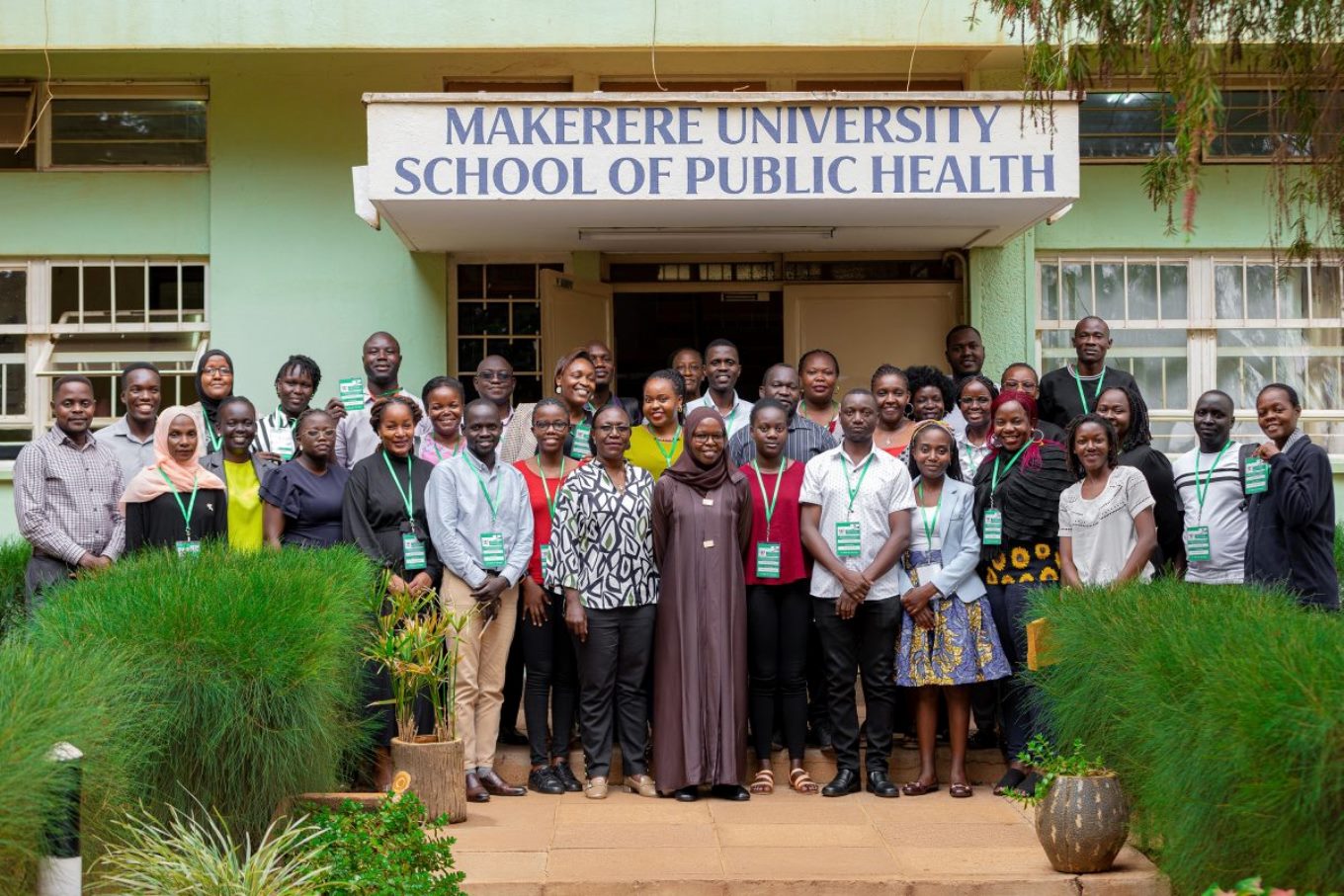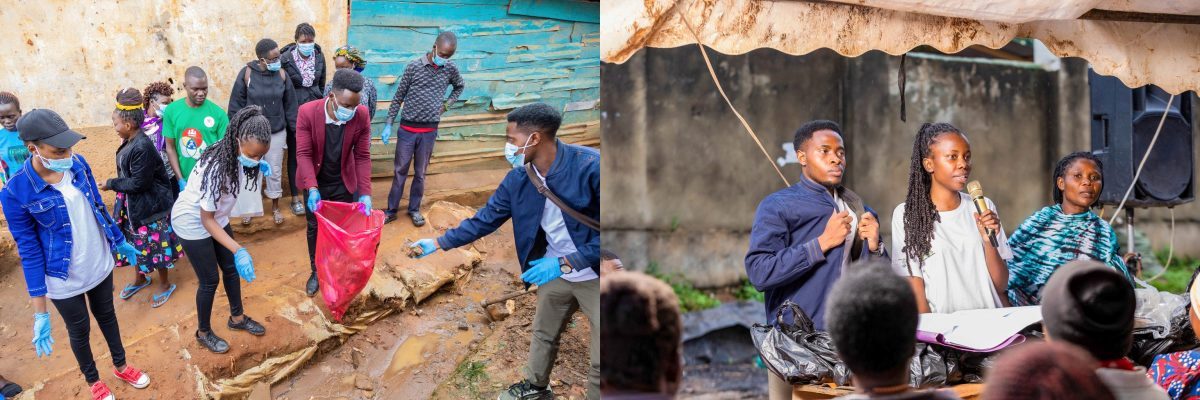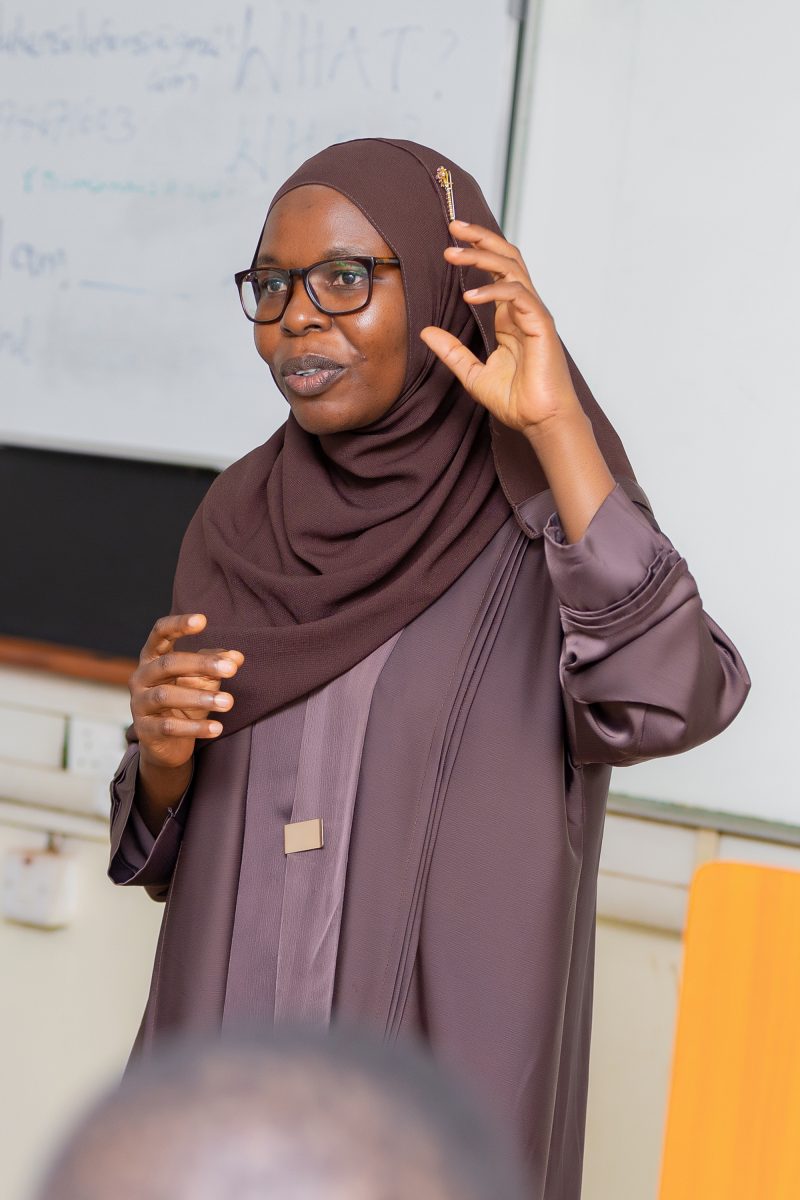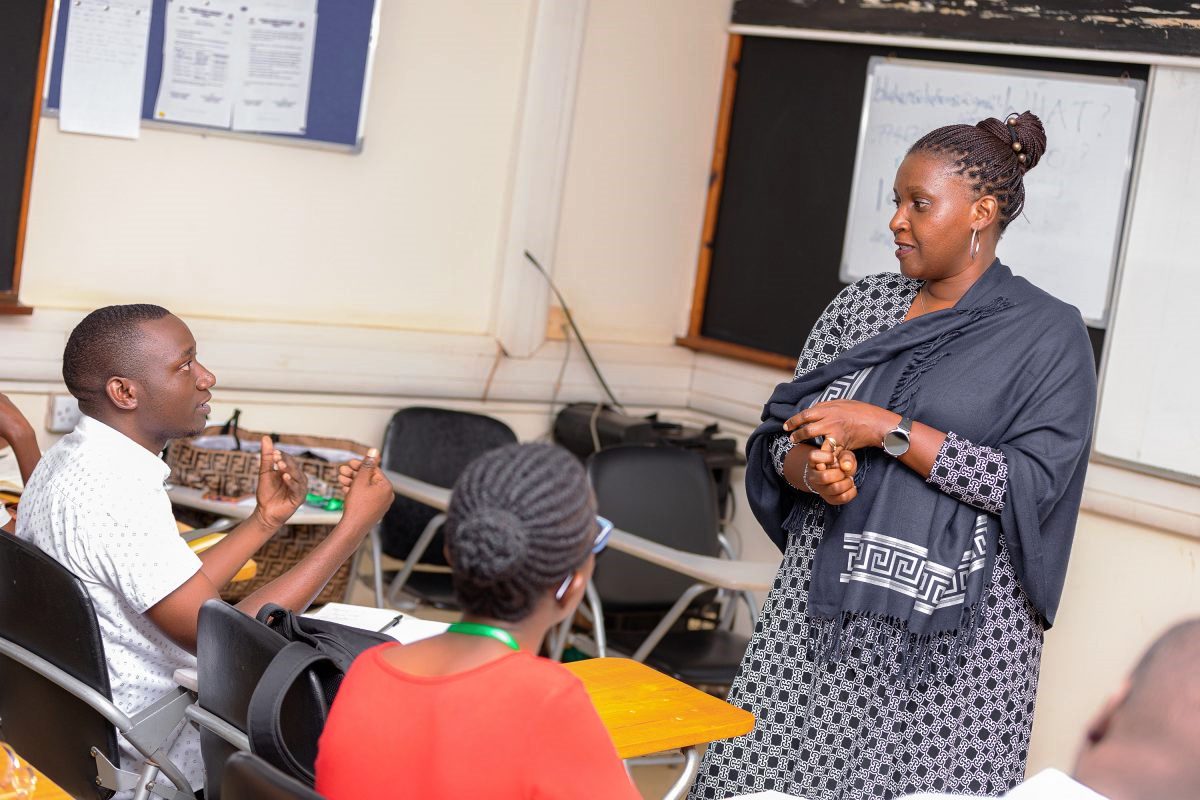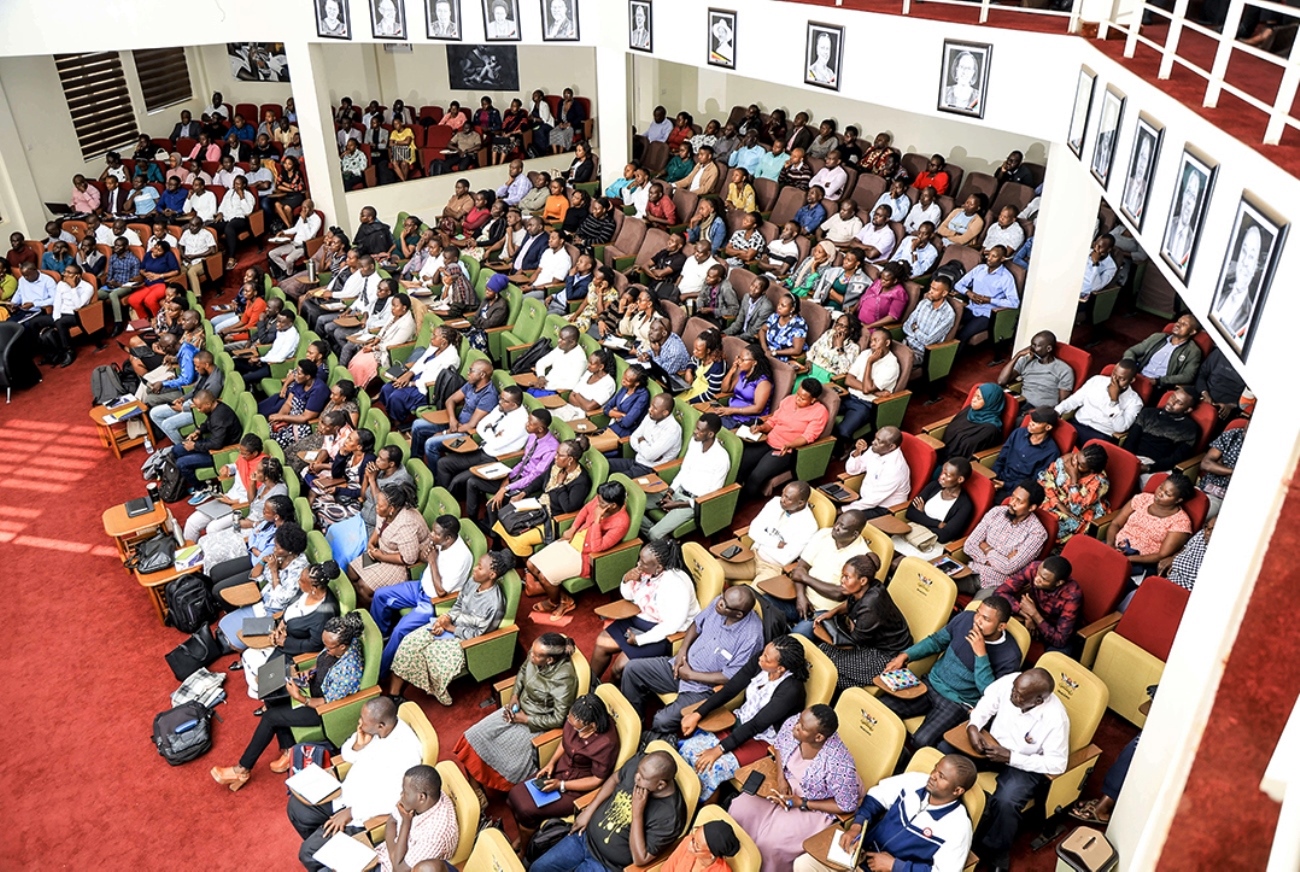Makerere University School of Public Health (MakSPH) stands as a pillar of public health excellence in Sub-Saharan Africa. Through research, policy influence, and capacity building, it drives real change—locally, nationally, and globally. With a strong legacy of collaboration with the Ministry of Health and international partners, MakSPH continues to tackle critical health challenges and shape the future of health systems.
Technical Support to National Health Policies and Guidelines
Makerere University School of Public Health (MakSPH) is a pillar of public health excellence in Sub-Saharan Africa, driving change through research, policy influence, and capacity building. MakSPH provides technical support for evidence-based policies and interventions. Its efforts in training and strengthening healthcare systems, particularly in underserved areas, continue to address critical gaps in family planning, maternal health, and other public health priorities.
“Our faculty members bring their expertise to national and global technical committees, advisory boards, and policy-making platforms, ensuring that research findings translate into actionable policies and practices,” reads part of the MakSPH Strategic Plan 2025-2030. This commitment to evidence-based decision-making has fostered extensive partnerships with government agencies, non-governmental organizations, and international institutions, amplifying the School’s impact on public health.
A New Era of Autonomy and Innovation
Effective January 2025, as granted by the Makerere University Governing Council, the MakSPH started operations as a standalone school, operating with a College status. This marked a fundamental milestone in its evolution. This autonomy enables MakSPH to innovate, broaden its impact, and address emerging public health challenges with greater agility.
Over the past decade, the School has experienced remarkable growth in student enrollment, research output, and strategic partnerships. With its new status, MakSPH is poised to strengthen health systems, advance groundbreaking research, and influence policies that transform lives, solidifying its position as a leader in public health training, research, and service.
Key Impact Programs and Initiatives
MakSPH’s impact is evident through its flagship programs and initiatives, which address a wide range of public health issues:
- Monitoring and Evaluation Technical Support (METS) Program: Implemented through three core areas—Health Systems Strengthening (HSS), Disease Surveillance and Response (DSR), and Data Science and Informatics (DSI)—the METS program strengthens health systems and improves data use for decision-making.
- PERSUADE I and II: Funded by the Global Fund, this initiative enhances the capacity of ministries of health in 13 countries to analyze and use program data for HIV, TB, and malaria. It also examines the impact of COVID-19 on disease programming, fostering regional collaboration and data-driven solutions.
- Reproductive, Maternal, Newborn, Child, and Adolescent Health Operational Research (RMNCAH OR): In partnership with the World Bank Group, this program provided critical operational research to improve health outcomes for vulnerable populations.
Global Leadership and Influence
Makerere University School of Public Health (MakSPH) is a leading force in public health training, research, and policy in Sub-Saharan Africa and beyond. Its faculty contribute to global health by shaping policies and driving innovations.
The faculty at MakSPH play an instrumental role in tackling global health challenges and advancing health equity, with their expertise shaping policies in vaccine advocacy, pandemic preparedness, maternal and child health, environmental health, and non-communicable diseases.
By offering leadership and technical advice in international organizations, they ensure our research translates into actionable policies, and this strengthens health systems and empowers communities, especially in low-resource settings. Through research and capacity-building in infectious and non-infectious diseases, reproductive health, and sustainable development, MakSPH collaborates with national and global partners to drive real-world impact.
As board members, chairs, and advisors in leading international organizations, they help advance evidence-based solutions for a healthier, more equitable future. Here are some of faculty and their key roles as of January 2025:
Prof. Rhoda Wanyenze: Represents the Research and Technical Health Institutes on Gavi, the Vaccine Alliance, and serves on the World Health Organization (WHO) Pandemic Influenza Preparedness (PIP) Framework Advisory Group. She is also a member of the Advisory Board for the Declaration of Research Assessment (DORA) and Co-Chair of the University of Oslo Lancet Commission on Global Governance for Health.
Dr. David Musoke: Co-Chair of the Community Health Workers Thematic Working Group, President-Elect of the International Federation of Environmental Health, and Member of the Technical Advisory Group of the Community Health Worker (CHW) Central.
Dr. John Bosco Isunju: Board Member of the Consortium for Advanced Research Training in Africa (CARTA).
Dr. Esther Bayiga Zziwa: Member of the WHO Technical Advisory Group (TAG) on Motorcycle Safety.
Dr. Frederick Oporia: Member of the WHO Technical Advisory Group (TAG) on Drowning.
Prof. Ssengooba Freddie: Member of the Medical Research Council (MRC) UK, the Applied Global Health Policy Research Board (AGHRB), and the NIHR’s Global Health Research Programme Board. He also serves on the Science Advisory Committee for the KEMRI-Wellcome Trust and the African Advisory Committee on Health Research and Development (AACHRD) for the WHO-Afro Office.
Assoc. Prof. Peter Waiswa: Independent Advisor to the WHO Director-General through the Strategic and Technical Advisory Group for Maternal, Newborn, Child, and Adolescent Health and Nutrition (STAGE). He is also a Technical Advisory Group Member for Small and Sick Newborns, Newborn Health Exemplars in Global Health, and Countdown 2030. Additionally, he serves as a Board Member of the ADARA Group and Director of the INDEPTH Network Maternal Newborn and Child Health Working Group.
Perez Nicholas Ochanda: Board Member of the International Society for Pharma-economics and Outcomes Research (ISPOR).
Dr. Suzanne Kiwanuka: Board Member of AFENET.
Assoc. Prof. Elizabeth Ekirapa: Board Chair of AMREF Uganda, AMREF Health Africa.
Assoc. Prof. Frederick Makumbi: Member of the Steering Committee for the International Union for the Scientific Study of Populations (IUSSP) Panel on Rethinking Family Planning Measurement with a Reproductive Rights and Justice Lens.
Prof. Nazarius Mbona Tumwesigye: Deputy President of the Association of Researchers in Substance Use in Africa (ARSUA).
Dr. Victoria Nankabirwa: Member of the WHO Immunization and Vaccines-related Implementation Research Advisory Committee (IVIR-AC).
Assoc. Prof. Noah Kiwanuka: Chairperson of the National Biosafety Committee at the Uganda National Council for Science and Technology (UNCST).
Dr. Edith Nakku Joloba: Member and Uganda Country Representative to the World Medical Association. She is also an Associate Editor and Member of the Editorial Committee for Biomed-Central Journal and Frontiers in Health.
Dr. Roy Mayega: Board Member of the Resilience Africa Network (RAN).
Dr. Phyllis Awor: Co-Lead of a Technical Working Group of Health Systems Global and a Coordinating Committee Member of the Social Innovation in Health Initiatives, Africa.
Prof. Orach G. Christopher: Uganda Chairman of the Canadian Physician Aids and Relief, Vice Chairman of the International Disaster Risk Reduction, and Vice Chairman of the Integrated Research on Disaster Risk Science Committee.
Dr. Dathan Byonanebye: Member of the Africa CDC NCDs Experts developing the “Africa Health Intelligence Report.”
A Vision for the Future
As MakSPH steps into its new chapter as a standalone school, its dedication to improving public health through training, research, and community service remains strong. With greater autonomy, stronger partnerships, and a drive for innovation, MakSPH is ready to tackle emerging health challenges and build a healthier, more equitable future. For more information about MakSPH’s programs, research, and initiatives, visit www.sph.mak.ac.ug.
________________________________________
Makerere University School of Public Health (MakSPH) is a leading public health training and research institution in Sub-Saharan Africa. The School conducts research and provides consultation services to the Government of Uganda Ministry of Heath, various national and international health organizations, as well as bilateral and multilateral agencies involved in health. The School provides graduate, undergraduate and in-service training in public health. MakSPH’s research and capacity-building efforts address a wide range of public health priorities but also look to strengthening health systems, shaping policy, and advancing digital health and substance abuse prevention. The School plays a key role in tackling infectious and non-infectious diseases, including HIV, TB, malaria, and epidemic response. It also focuses on sexual, reproductive, maternal, newborn, and child health (SRMNCH), emphasizing sexual and reproductive health and rights (SRHR) and universal health coverage. Environmental and sustainable health remains central, particularly in water, sanitation, and hygiene (WASH).
As public health challenges evolve, the School is expanding into noncommunicable diseases (NCDs), climate change and health, neglected tropical diseases (NTDs), trauma, injury, disability, and urban health. Through research, policy engagement, and community-driven solutions, MakSPH continues to drive meaningful public health impact in further advancing Makerere University mission and vision.
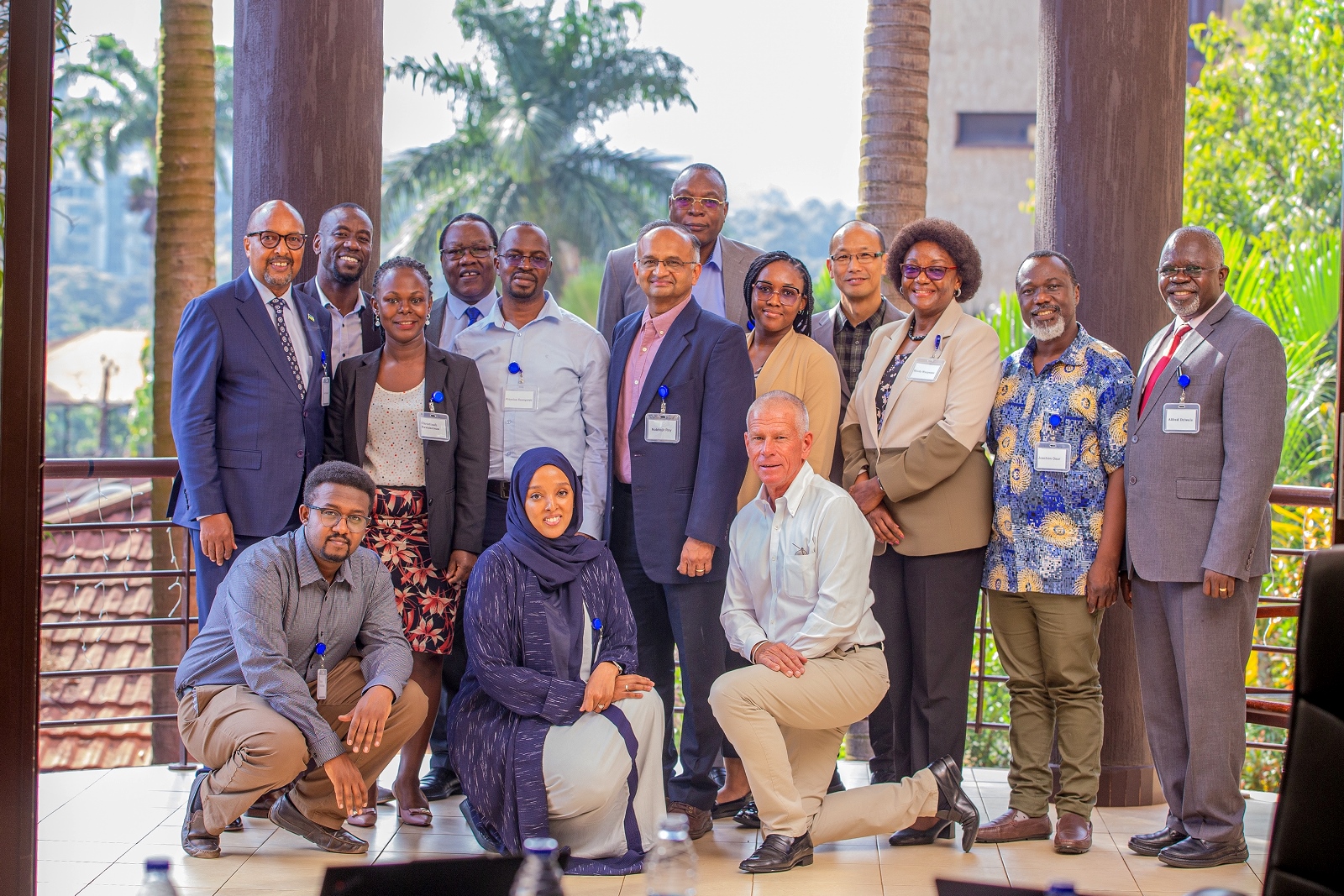

 General4 days ago
General4 days ago
 General1 week ago
General1 week ago
 General1 week ago
General1 week ago
 General1 week ago
General1 week ago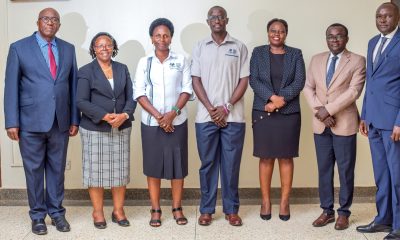
 General2 weeks ago
General2 weeks ago
